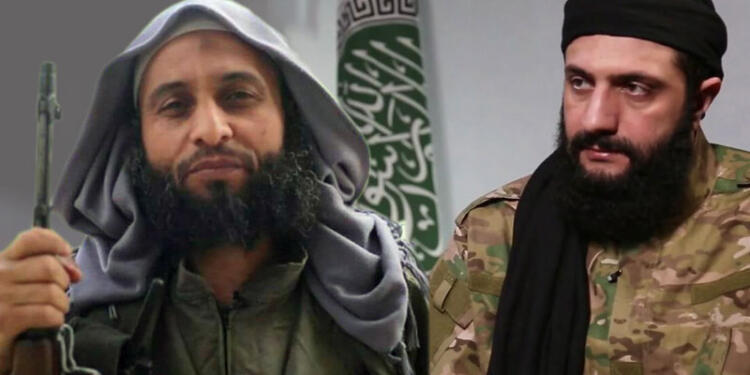On Sunday the expected fall of President Bashar al-Assad’s regime was announced by the Islamist terror group Hayat Tahrir al-Sham (HTS) after its forces captured Damascus. The terror group had been on a complete charge for the past few weeks capturing one major city after another. With the fall of the Assad regime, the Assad family’s rule over the country ended after 54 long years. The leader of the terror outfit, Abu Mohammad al-Julani, has now come to the forefront as the most probable defacto head of Syria.
The country now falls in the hands of the HTS, formerly known as the Nusra Front and once affiliated with Al-Qaida, a dreaded terrorist group. The group first captured key cities, including Aleppo and Hama, in a blitzkrieg move before storming Damascus. Bashar al-Assad who ruled the country for 24 years has now fled and reportedly taken asylum in Russia.
Speaking to CNN at an undisclosed location, Julani said that the primary motive of the “revolution” in Syria was to overthrow President Assad’s regime and the establishment of a kind of government where a “council chosen by the people” would be at the helm of affairs.
“When we talk about objectives, the goal of the revolution remains the overthrow of this regime. It is our right to use all available means to achieve that goal,” Julani told CNN in an old interview. “The seeds of the regime’s defeat have always been within it, the Iranians attempted to revive the regime, buying it time, and later the Russians also tried to prop it up. But the truth remains: this regime is dead,” Julani added.
HTS leader Abu Muhummad al-Julani
Julani was born in Saudi Arabia in 1982, and spent the initial seven years of his childhood in Riyadh, where his father worked as a petroleum engineer. In 1989, Julani returned to Syria as his family decided to settle near Damascus.
He joined Al-Qaeda in 2003 in Iraq at the time when the US invaded the Middle East as part of its war against terrorism. Julani, also known as Abu Mohammad al-Golani, has a $10 million bounty on his head under the U.S. Department of State’s Rewards for Justice program.
He was designated as a “Specially Designated Global Terrorist” in 2013. Julani’s rise began under the guidance of Baghdadi, who instructed him to establish a front for Al-Qaida in Syria. While working with the terror outfit, Julani established HTS under a different name, Jabhat al-Nusra, in 2011 as a direct affiliate of Al-Qaeda. The Nusra Front, armed with manpower, weapons, and funds from Al-Qaida in Iraq, vowed to overthrow Assad as early as 2012.
Over the years, Julani’s organization evolved, rebranding itself from the Nusra Front to Jabhat Fateh al-Sham and eventually Hayat Tahrir al-Sham in 2017. Despite severing ties with Al-Qaida, HTS remained controversial, with analysts pointing to its ideological alignment with jihadism and history of violence.
In 2013, Julani announced that his group would be cutting ties with Baghdadi. He also fought a bloody war against Baghdadi after the Islamic State sought to unilaterally subsume the Nusra Front in 2013. Nearly eight years after its disassociation with al-Qaeda, Julani again emerged into the media headlines when he talked to a US media organisation about the designation of the HTS as a terror group and pointed out that he opposed the killing of innocent people.
He further detailed how the Nusra Front had expanded from the six men who accompanied him from Iraq to 5,000 within a year in his interview. As the Islamic State collapsed in 2022 after the killing of Baghdadi, Julani cemented the grip of HTS in the northwestern Syrian province of Idlib, establishing a civil administration called the Salvation Government.
With the Syrian rebel forces taking control of Damascus, Julani now seems to be looking to rebrand the HTS as a credible governing entity in Syria. The HTS seems to have adopted a strategy of “jihadism in methodology and nationalism in geography,” balancing its hardline roots with a focus on localized governance. The Western media has also completely diverged from its earlier views. Julani who was branded as a terrorist with a bounty on his head, is now being touted as a great freedom fighter and is being backed with great fanfare as he replaces the Assad regime.
Post 9/11, the US adopted a hardline, my way or high way approach on its global war against terrorism, coming hard against even nations unaffected by their counter-terror gameplan. Since then, it projected as if it had zero-tolerance policy against terrorism, an abhorrent crime against humanity, one that must be dealt with above partisan issue, nationality, political ideology or short-sighted gains. However, as India has been pressing the so-called Global Institutions to define terrorism and not fall prey to petty, ‘Good terrorism and Bad terrorism,’ the West has dealt a major blow in the Global fight against terrorism in its oneup man ship and to gain a geopolitical victory over Russia-Iran alliance.
Nonetheless, the Assad family had enjoyed an autocratic rule for decades, and now with their fall the region will see further destabilization. Despite the public statements both the United States and Russia have an active interest in the country, while Israel and Turkey will also actively look to have their say in the developing geopolitics in the middle east. Julani is the latest addition to the complicated politics of the region that sees another warlord coming to power, with hopes that this time things will turn out differently.
























